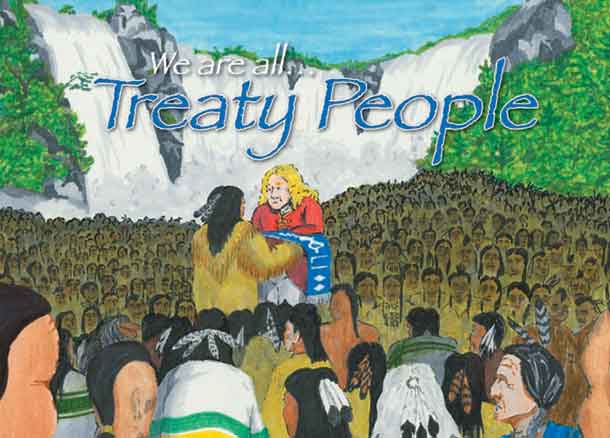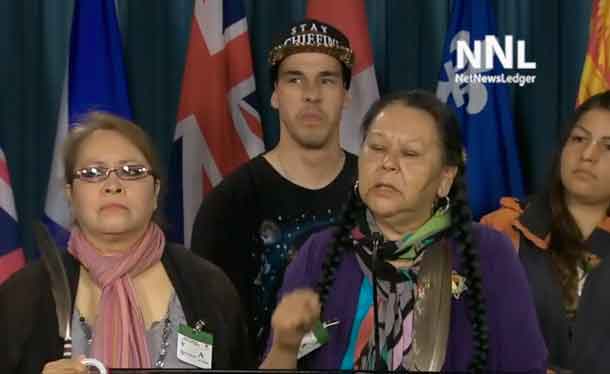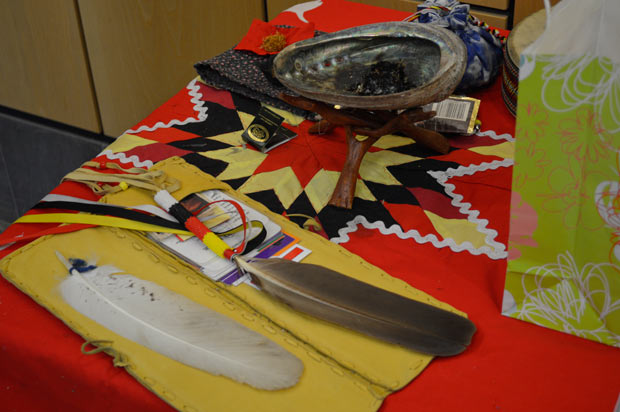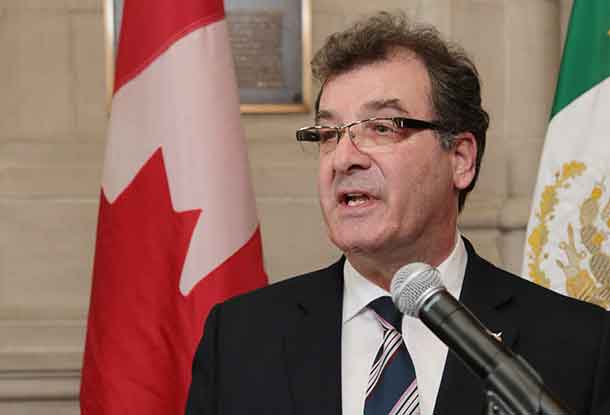

By Maurice Switzer
THUNDER BAY – OPINION – So, if you had a neighbour who kept stealing stuff from your yard, and constantly screamed obscenities at your kids, would you attend his birthday party if you got an invitation in your mailbox?
How about if you had a neighbour who stole your yard and kidnapped your kids?
Now you have some idea of how First Nations people feel about all the fuss being made over Canada’s 150th birthday.
In the first place, 150 years isn’t very long to people who’ve been around for thousands of years – it leaves one with the same feeling you get when you see some wet-behind-the-ears pup like Justin Bieber publishing an autobiography – TOO SOON!
People need to understand that those 150 years just happen to represent the worst period in history for the first peoples to inhabit these lands. Don’t expect any July 1st fireworks displays in the 100 First Nations who live under boil-water advisories – some for over a decade.
The $500 million being spent by the federal government on Canada’s sesquicentennial bash is triple the amount it was ordered by a human rights tribunal to provide equal funding for First Nations child welfare agencies. This discriminatory gap is literally costing Native kids their lives.
This is the first of a series of four columns that will list 150 reasons Indigenous peoples have to feel less than enthusiastic about participating in the Liberal Lollapalooza. There are many more, but we just want to offer enough information to rain a little on the parade, not entirely engulf it.
- The Bering Strait Theory: a harebrained notion that Indigenous peoples trotted across an ice bridge separating Mongolia from Alaska 12,000 years ago to make America their home. This canard is repeated in Canadian textbooks despite being continually discredited, most recently by findings that push the estimate back by over 100,000 years. They couldn’t convict O.J. Simpson on DNA evidence, so please don’t try to carbon date us with that trick.
- The Doctrine of Discovery: In 1452 Pope Nicholas V decrees that any lands encountered by the explorers of Roman Catholic countries like France, England, Spain, Italy and Portugal could be considered “empty” if its occupants do not share the same religious beliefs as the so-called “discoverers”. This uber-racist doctrine has never been repealed, and was used as justification for the colonization of most of the world by zealous Europeans who – it bears mentioning — also believed the world was flat and the sun revolved around it.
3-4. The two sons of Chief Donnacona are kidnapped by Jacques Cartier in 1534 on the French explorer’s first trip up the St. Lawrence River, where he is greeted with great hospitality at the Iroquoian village of Stadacona. Cartier whisks them off to show as trophies to the King of France in what undoubtedly qualifies as the worst example of making a good first impression in the history of European diplomacy.
5-6. Two Mohawk chiefs are killed by the same musket-ball fired by Samuel de Champlain during a 1609 sortie into what is now New York State in which the celebrated “Father of New France” accompanies Huron fur-trading partners. This alliance results in the Iroquois virtually annihilating the Huron Nation within the next 50 years.
7-13. Seven years is the length of the apprenticeship the Hudson Bay Company requires applicants with any Indian heritage to serve if they hope to get jobs with the greedy multinational fur merchant. At the same time, raw European recruits qualify immediately for employment.
14-17. Four months – how long it takes King George III to whip together the Royal Proclamation after Odawa chief Pontiac and a couple of hundred warriors capture nine British forts on what is the western frontier of Canada. Pontiac is not impressed with the arrogant English, who have defeated the French in the Seven Years’ War and experimented in germ warfare by distributing smallpox-infected blankets among the Natives. The Royal Proclamation says “the Indian tribes of North America” are nations, who are not to be “molested” in their own lands.
18-41. The largest gathering of Indigenous peoples in the history of the North American continent – 3,000 chiefs representing 24 Nations of peoples living around the Great Lakes – convene at Fort Niagara in July, 1764. They hear the Superintendent of Indian Affairs for British North America – Sir William Johnston – pitch the first major treaty on the continent. In exchange for the rights to create settlements and share existing Indian territories, the King’s representative offers an estimated 35,000 gifts, the cash equivalent in today’s terms of $20 million, a huge swath of the centre of North America to be set aside as exclusive Indian territory, and a sacred promise to the assembled chiefs that “Your people will never be poor; they will never want for the necessities of life…..as long as the sun shines, as long as the grass grows, as long as the rivers run, and as long as the British wear red coats.”
On July 1st, 2017, the sun will be shining over Parliament Hill, the grass will be growing – even if temporarily trampled by thousands of Canadians watching performers on a huge stage and waiting for the fireworks to start – and the Ottawa River will be roaring over the Chaudiere Falls. Tourists will be asking to pose for photos beside Mounties wearing their scarlet Red Serge tunics.
The half-billion-dollar party will be taking place on land that has never been legally acquired by the Government of Canada, and will be watched on television by thousands of people, some of whom live in homes without a safe source of drinking water, and whose children experience the highest degrees of poverty, disease, and youth suicide in the Western world.
To be, unfortunately, continued.
Maurice Switzer is a citizen of the Mississaugas of Alderville First Nation. He operates Nimkii Communications, a public education practice with a focus on the Treaty Relationship between First Nations and Canada.
This is part one of a series… stay tuned for the next part on Monday, June 18/17




